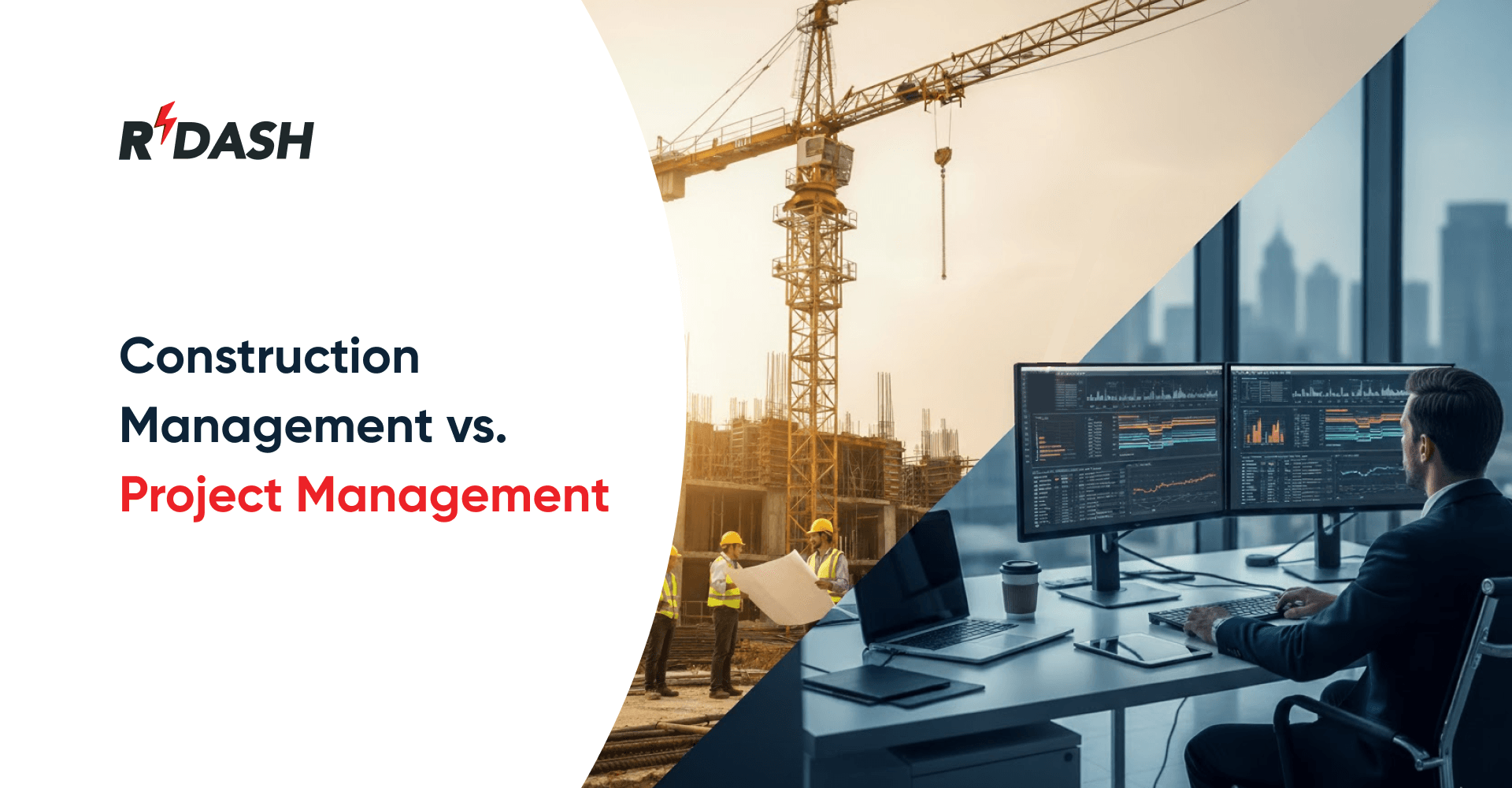A general contractor (GC) is a key figure in the construction industry, managing projects from start to finish for property owners or developers. GCs handle scheduling, budgeting, material procurement, and subcontractor supervision. Their responsibilities include understanding project specifications, creating timelines and budgets, and ensuring compliance with industry standards. Effective communication is crucial as they coordinate between architects, engineers, and clients while managing risks like weather delays and supply chain issues. Despite challenges such as regulatory requirements and subcontractor performance unpredictability, GCs provide essential leadership and expertise, ensuring projects are completed efficiently, safely, and to the required standards, significantly impacting the built environment.
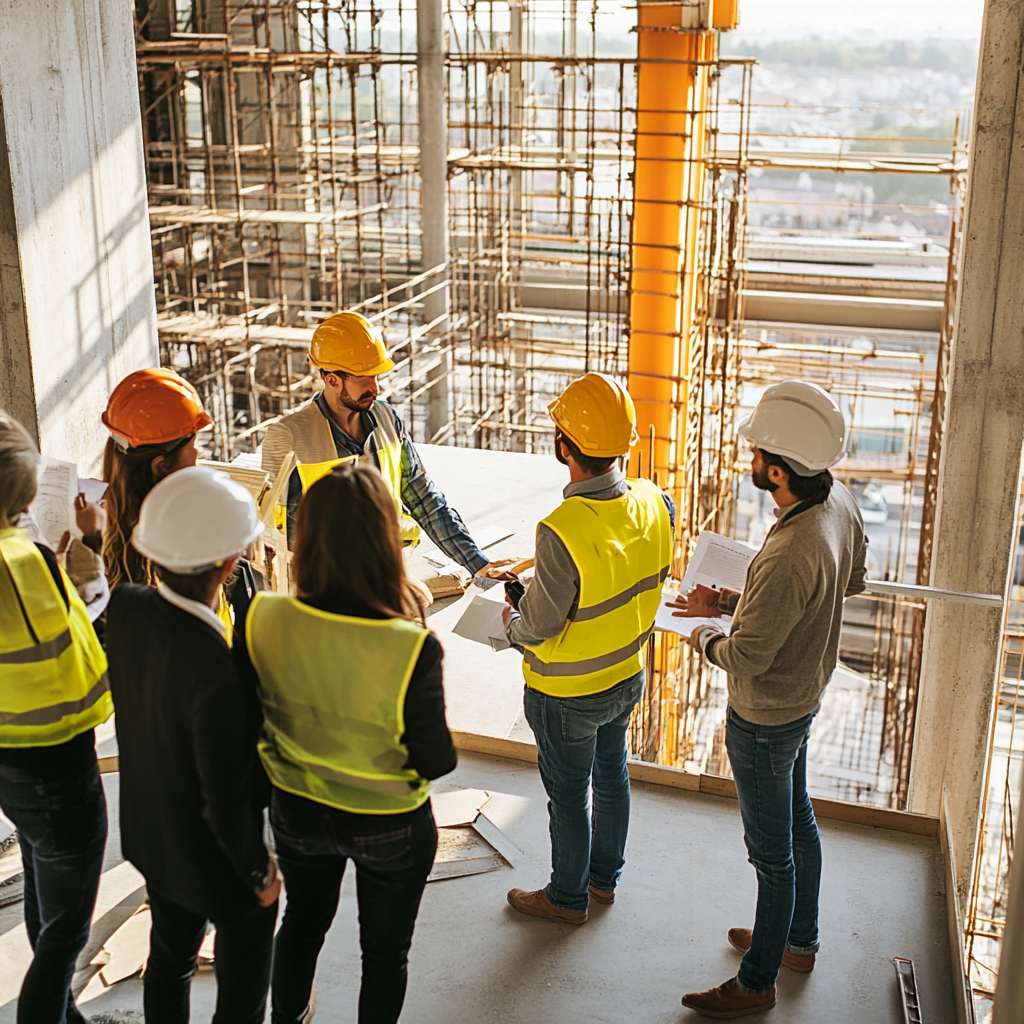
What Is a General Contractor?
A general contractor (GC) plays a pivotal role in the construction industry, acting as the primary point of responsibility for overseeing and managing construction projects from inception to completion. Typically hired by property owners or developers, the general contractor coordinates all aspects of a construction project, including scheduling, budgeting, procurement of materials, and the supervision of subcontractors. This multifaceted role requires a blend of technical knowledge, project management skills, and effective communication, as GCs serve as the liaison between various stakeholders, such as architects, engineers, subcontractors, and clients.
The general contractor’s responsibilities begin with understanding the project requirements and specifications outlined in the blueprints and construction documents. They are instrumental in creating a detailed project timeline and budget, ensuring that all elements align with the client’s vision and financial constraints. Throughout the construction process, the GC manages the procurement of materials, ensuring quality and timely delivery to maintain project momentum. They are also responsible for hiring and overseeing subcontractors, including electricians, plumbers, and carpenters, ensuring that each trade complies with industry standards and regulations.
An essential aspect of a general contractor’s role is risk management. GCs must anticipate potential challenges, from weather delays to supply chain issues, and develop strategies to mitigate these risks. Effective communication is vital, as they must keep all parties informed and engaged, facilitating collaboration and addressing any concerns that arise. Regular site visits and inspections are part of their routine, allowing them to monitor progress, enforce safety protocols, and ensure that the work meets the project’s specifications.
Despite their comprehensive role, general contractors face limitations that can impact their effectiveness. They must navigate regulatory requirements, such as building codes and zoning laws, which can vary by location. Additionally, financial constraints may limit the scope of work or the quality of materials that can be used. The GC’s reliance on subcontractors means that their reputation is often tied to the performance of these third parties, making it crucial to select trustworthy and skilled professionals. Furthermore, unforeseen circumstances, such as economic downturns or sudden changes in client expectations, can pose significant challenges that GCs must adeptly manage..
How to Obtain General Contractor License?

1. Understanding the Need for Licensing:
- Licensing ensures that general contractors meet specific standards of competency, quality, and safety. It provides credibility and trustworthiness in the construction industry, helping contractors secure more projects and clients.
2. Educational and Professional Requirements:
- Educational Qualifications : Typically, a degree or diploma in civil engineering, construction management, or a related field is preferred. Some states might accept substantial experience in lieu of formal education.
- Professional Experience : Many licensing bodies require a certain number of years of experience in the construction industry. This experience can include working as a contractor, subcontractor, or in another relevant role.
3. Registration of the Business:
- Company Registration : The first step is to register your construction business with the appropriate government authority. This could be as a sole proprietorship, partnership, limited liability partnership (LLP), or a private limited company.
- GST Registration : Register for Goods and Services Tax (GST) to comply with tax regulations.
4. Obtaining the Necessary Approvals:
- Local Municipal Authority : Contact the local municipal authority where you plan to operate. They often have specific requirements and procedures for issuing a general contractor license.
- Public Works Department (PWD) : In some states, you might need to get approval from the PWD or similar regulatory bodies that oversee public construction projects.
5. Required Documentation:
- Identity Proof : Aadhaar card, PAN card, or passport of the business owner(s).
- Address Proof : Utility bills, rental agreement, or property documents.
- Educational Certificates : Copies of relevant educational qualifications.
- Experience Certificates : Proof of professional experience in the construction industry.
- Company Registration Documents : Certificate of incorporation, partnership deed, or sole proprietorship declaration.
- GST Certificate : Proof of GST registration.
- Financial Statements : Bank statements or audited financial statements of the business.
6. Completing the Application Process:
- Application Form : Fill out the prescribed application form available from the local municipal authority or PWD.
- Submission : Submit the completed form along with the required documents to the relevant authority.
- Fee Payment : Pay the applicable licensing fee. This fee varies depending on the state and the scope of the license.
7. Examination and Interview (if applicable):
- Some licensing authorities may require you to pass an examination that tests your knowledge of construction practices, safety regulations, and local building codes.
- An interview might also be conducted to assess your qualifications and experience.
8. Site Inspection:
- The licensing authority may conduct a site inspection to verify the details provided in the application. This could include checking the business premises, equipment, and other resources.
9. Issuance of License:
- Upon successful completion of all the above steps, the licensing authority will issue a general contractor license. This license is typically valid for a specified period and must be renewed periodically.
10. Continuous Compliance and Renewal:
- Adherence to Regulations : Ensure continuous compliance with local building codes, safety standards, and other regulatory requirements.
- Renewal Process : Stay aware of the license renewal process, which often involves submitting updated documents and paying renewal fees before the license expiration date.
General Contractor Services
In India, general contractors (GCs) play a pivotal role in the construction industry, bridging the gap between project conception and completion. They are hired by property owners or developers to oversee and manage the entire construction process. Their responsibilities encompass a wide range of tasks, ensuring that projects are executed efficiently, safely, and to the highest standards.
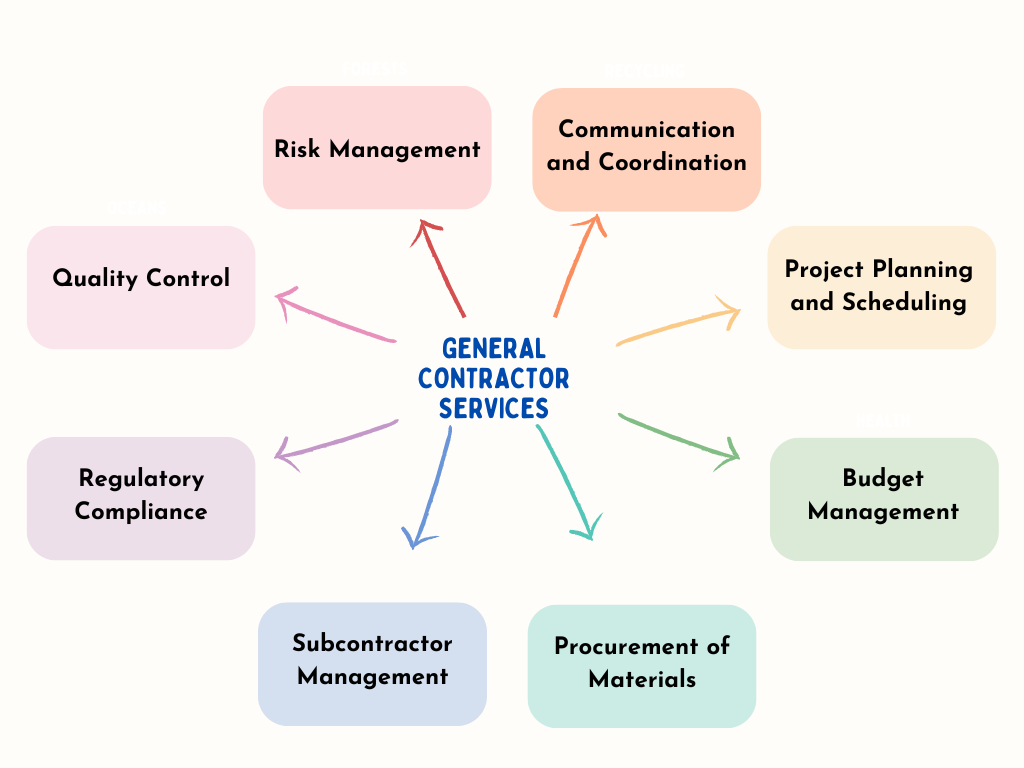
- Project Planning and Scheduling
- Detailed Planning : GCs develop comprehensive project plans that outline every phase of the construction process. This includes creating timelines, setting milestones, and determining deadlines for each stage.
- Scheduling : Effective scheduling ensures that all tasks are completed on time, preventing delays and ensuring a smooth workflow.
- Budget Management
- Cost Estimation : GCs provide accurate cost estimates based on project specifications, materials, labor, and other expenses.
- Budget Tracking : They monitor expenditures throughout the project, ensuring that it stays within the allocated budget and making adjustments as necessary.
- Procurement of Materials
- Sourcing Quality Materials : GCs are responsible for sourcing and purchasing high-quality materials required for construction. They leverage their industry connections to obtain materials at competitive prices.
- Inventory Management : Efficient inventory management ensures that materials are available when needed, reducing downtime and avoiding project delays.
- Subcontractor Management
- Hiring Subcontractors : GCs hire and manage various subcontractors, including electricians, plumbers, carpenters, and masons. They ensure that each subcontractor is qualified and capable of performing their specific tasks.
- Coordination : Coordinating the activities of multiple subcontractors is crucial to maintaining a seamless construction process. GCs ensure that all subcontractors work in harmony and adhere to the project schedule.
- Regulatory Compliance
- Permits and Approvals : GCs handle the process of obtaining necessary permits and approvals from local authorities. This includes adhering to building codes, safety regulations, and environmental standards.
- Inspections : They coordinate and facilitate inspections to ensure that all work meets regulatory requirements and is of high quality.
- Quality Control
- On-Site Supervision : GCs provide on-site supervision to monitor the quality of work being performed. They ensure that construction adheres to the design specifications and standards.
- Regular Inspections : Conducting regular inspections helps identify and rectify any issues early, ensuring that the final output is of the highest quality.
- Risk Management
- Identifying Risks : GCs identify potential risks, such as weather delays, supply chain disruptions, and safety hazards.
- Mitigation Strategies : They develop and implement strategies to mitigate these risks, ensuring minimal impact on the project timeline and budget.
- Communication and Coordination
- Stakeholder Liaison : GCs serve as the primary point of contact between property owners, architects, engineers, and other stakeholders. Effective communication ensures that everyone is aligned and informed about project progress.
- Conflict Resolution : They handle any disputes or conflicts that arise during the construction process, ensuring smooth and continuous progress.
Types of General Contractors
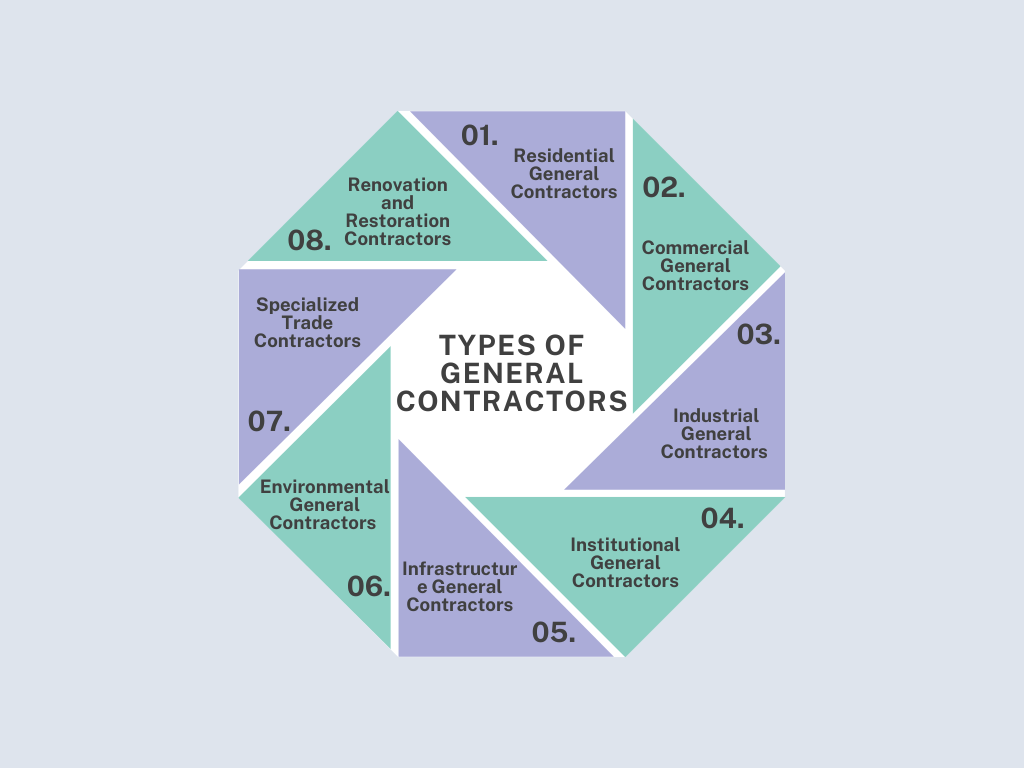
- Residential General Contractors : These contractors specialize in constructing, renovating, and remodeling homes and residential complexes. Their services include custom home building, renovations, remodeling projects, and community development. They work closely with individual homeowners, real estate developers, and housing societies to deliver projects that meet specific residential needs. By managing all aspects of residential construction, they ensure that projects are completed efficiently, within budget, and to the satisfaction of their clients.
- Commercial General Contractors : Focused on the commercial sector, these contractors manage the construction and development of commercial properties such as offices, retail spaces, hotels, and restaurants. Their services encompass the full range of commercial construction, from office buildings to retail spaces and hospitality projects. They cater to business owners, real estate investors, and retail chains, ensuring that commercial spaces are designed and built to enhance functionality, aesthetic appeal, and profitability.
- Industrial General Contractors : These contractors handle the construction of industrial facilities, including factories, warehouses, and manufacturing plants. They offer services that cover the entire spectrum of industrial construction, such as factory construction, warehouse development, and infrastructure projects. Their key clients include manufacturing companies, logistics firms, and government bodies. Industrial GCs ensure that these large-scale projects are executed efficiently, meeting strict regulatory and operational standards.
- Institutional General Contractors : Specializing in buildings for public and private institutions, these contractors manage projects such as schools, hospitals, and government buildings. Their services include the construction of educational facilities, healthcare projects, and government buildings. They work with educational institutions, healthcare providers, and government agencies to deliver structures that meet the specific needs and standards of institutional clients, ensuring that these buildings serve their intended purposes effectively.
- Infrastructure General Contractors : These contractors focus on large-scale public works projects, including roads, bridges, airports, and railways. Their services involve road construction, bridge and tunnel projects, and the development of public transport facilities. They primarily serve government departments, public sector undertakings, and large construction firms. Infrastructure GCs play a crucial role in developing and maintaining the country’s essential infrastructure, contributing to economic growth and public welfare.
- Environmental General Contractors : Specializing in sustainability and environmental protection, these contractors undertake projects like waste management facilities and water treatment plants. Their services include waste management, water treatment, and green building projects. They work with municipal corporations, environmental organizations, and private developers focused on sustainability. Environmental GCs ensure that projects are designed and built to minimize environmental impact and promote sustainable practices.
- Specialized Trade Contractors : These contractors focus on specific trades within construction, such as electrical work, plumbing, and HVAC. Their services include electrical installations, plumbing systems, and HVAC installation and maintenance. They often work as subcontractors for other general contractors, property owners, and specialized project managers. By providing expert services in their respective trades, they contribute to the overall quality and efficiency of construction projects.
- Renovation and Restoration Contractors : Specializing in updating and preserving existing structures, these contractors work on projects that include historical buildings and old residential or commercial properties. Their services involve historical restoration, modernization projects, and structural repairs. They cater to heritage conservation bodies, property owners, and government agencies, ensuring that renovations and restorations maintain the integrity and historical value of buildings while updating them for contemporary use.
General Contractor Salary
The salary range for a general contractor in India varies based on factors such as location, experience, and the scale of projects. In India, general contractors typically earn between ₹3,00,000 to ₹25,00,000 annually, with an average salary around ₹7,00,000. This significant range reflects the diverse nature of construction projects and the varying costs of living across different regions in the country. Experienced general contractors overseeing larger projects in metropolitan areas tend to earn on the higher end of this scale, while those starting their careers or working in smaller towns may earn less.
Job Description for General Contractor
A General Contractor (GC) is a pivotal figure in the construction industry, responsible for overseeing and managing construction projects from inception to completion. This role involves coordinating various aspects of construction, including planning, budgeting, procurement, and supervision of subcontractors. The general contractor ensures that projects are completed on time, within budget, and to the required quality standards, adhering to all relevant regulations and safety protocols.
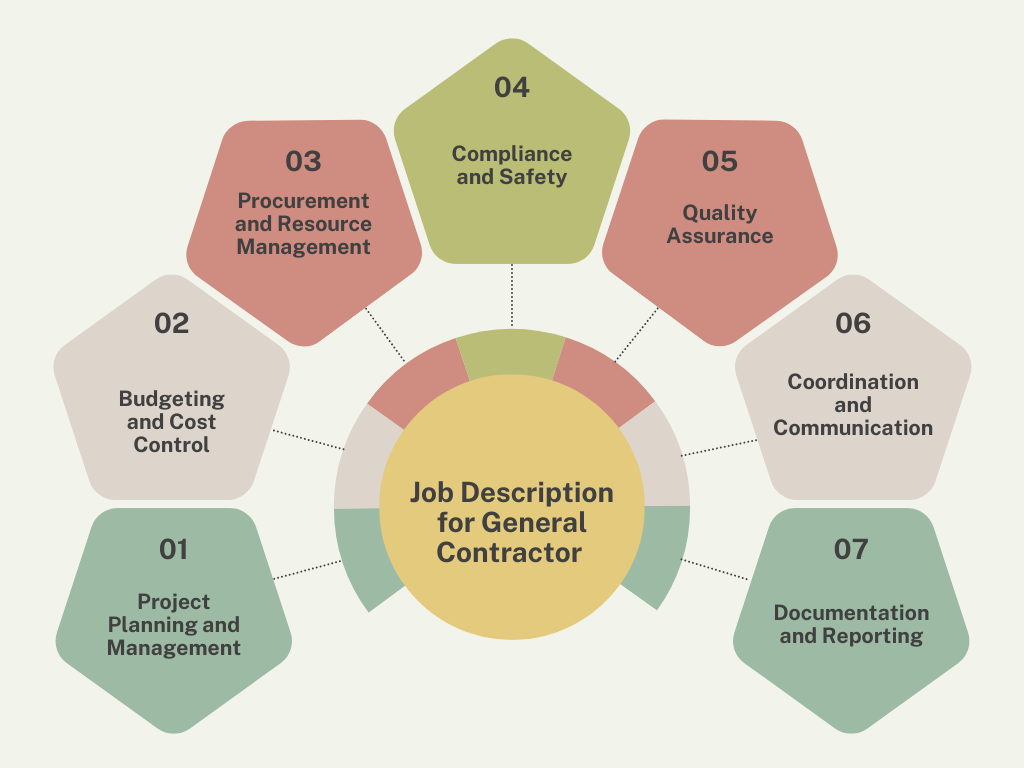
1. Project Planning and Management:
- Initial Planning : Develop detailed project plans, including timelines, budgets, and resource allocation. This involves understanding project specifications and requirements provided by clients.
- Scheduling : Create comprehensive schedules for various stages of the construction process, ensuring all activities are well-coordinated and deadlines are met.
- Risk Management : Identify potential risks and implement strategies to mitigate them, ensuring minimal disruption to project timelines.
2. Budgeting and Cost Control:
- Budget Preparation : Prepare detailed budgets, considering all aspects of the project, including materials, labor, equipment, and overheads.
- Cost Monitoring : Continuously monitor project expenditures, ensuring costs are within the budget. Implement cost-saving measures without compromising on quality.
3. Procurement and Resource Management:
- Material Procurement : Source and procure high-quality construction materials at competitive prices. Negotiate with suppliers to ensure timely delivery.
- Equipment and Labor : Ensure the availability of necessary equipment and skilled labor. This includes hiring subcontractors and coordinating their activities.
4. Compliance and Safety:
- Regulatory Compliance : Ensure that all construction activities comply with local building codes, environmental regulations, and other relevant laws.
- Safety Protocols : Implement and enforce safety protocols to ensure a safe working environment. Conduct regular safety audits and training sessions.
5. Quality Assurance:
- Standards Adherence : Ensure that all work meets the required quality standards. Conduct regular inspections and quality control checks.
- Client Satisfaction : Maintain open communication with clients, addressing their concerns and ensuring their satisfaction with the project’s progress and final outcome.
6. Coordination and Communication:
- Stakeholder Management : Act as the primary point of contact between clients, architects, engineers, and subcontractors. Facilitate effective communication among all parties involved.
- Progress Reporting : Provide regular updates to clients and stakeholders on project status, including progress reports, financial summaries, and any changes to the project scope or timeline.
7. Documentation and Reporting:
- Record Keeping : Maintain detailed records of all project activities, including contracts, permits, invoices, and correspondence.
- Final Reporting : Prepare comprehensive project completion reports, documenting all aspects of the project for future reference and compliance purposes.
Qualifications and Skills
Educational Requirements:
- A degree in Civil Engineering, Construction Management, or a related field is preferred. Relevant certifications and licenses are advantageous.
Professional Experience:
- Proven experience in the construction industry, with a minimum of 5-7 years in a supervisory or management role.
Technical Skills:
- Proficiency in construction management software and tools.
- Strong understanding of construction methods, materials, and legal regulations.
Soft Skills:
- Excellent leadership and team management abilities.
- Strong negotiation and communication skills.
- Problem-solving aptitude and attention to detail.
General Contractor vs. Contractor

In the Indian construction industry, distinguishing between a general contractor and a contractor is crucial for project success. A general contractor oversees the entire project, coordinating subcontractors, managing timelines, and ensuring compliance with safety regulations and budgets. They serve as the main communication point, integrating all aspects, from civil works to electrical installations. In contrast, contractors are specialized entities or individuals hired for specific tasks, such as plumbing or masonry, often working under the general contractor’s guidance. As India’s construction sector grows, collaboration between general contractors and specialized contractors is vital for maintaining quality and efficiency while adhering to local regulations. Understanding this dynamic helps stakeholders navigate complexities and achieve timely project completion.
Conclusion
A general contractor (GC) is essential in the construction industry, overseeing project completion and managing subcontractors while ensuring compliance with regulations. They provide valuable project oversight and liability protection, acting as the main point of contact for all stakeholders. However, GCs face challenges, including reliance on subcontractors for specialized tasks, which can lead to quality control issues. Financial risks are significant, particularly with lump sum contracts where cost overruns can impact profit margins. Coordination challenges arise from managing multiple subcontractors, and regulatory compliance requires staying updated on local building codes. Understanding the roles and responsibilities of GCs helps project owners make informed decisions, ultimately contributing to successful construction outcomes.



